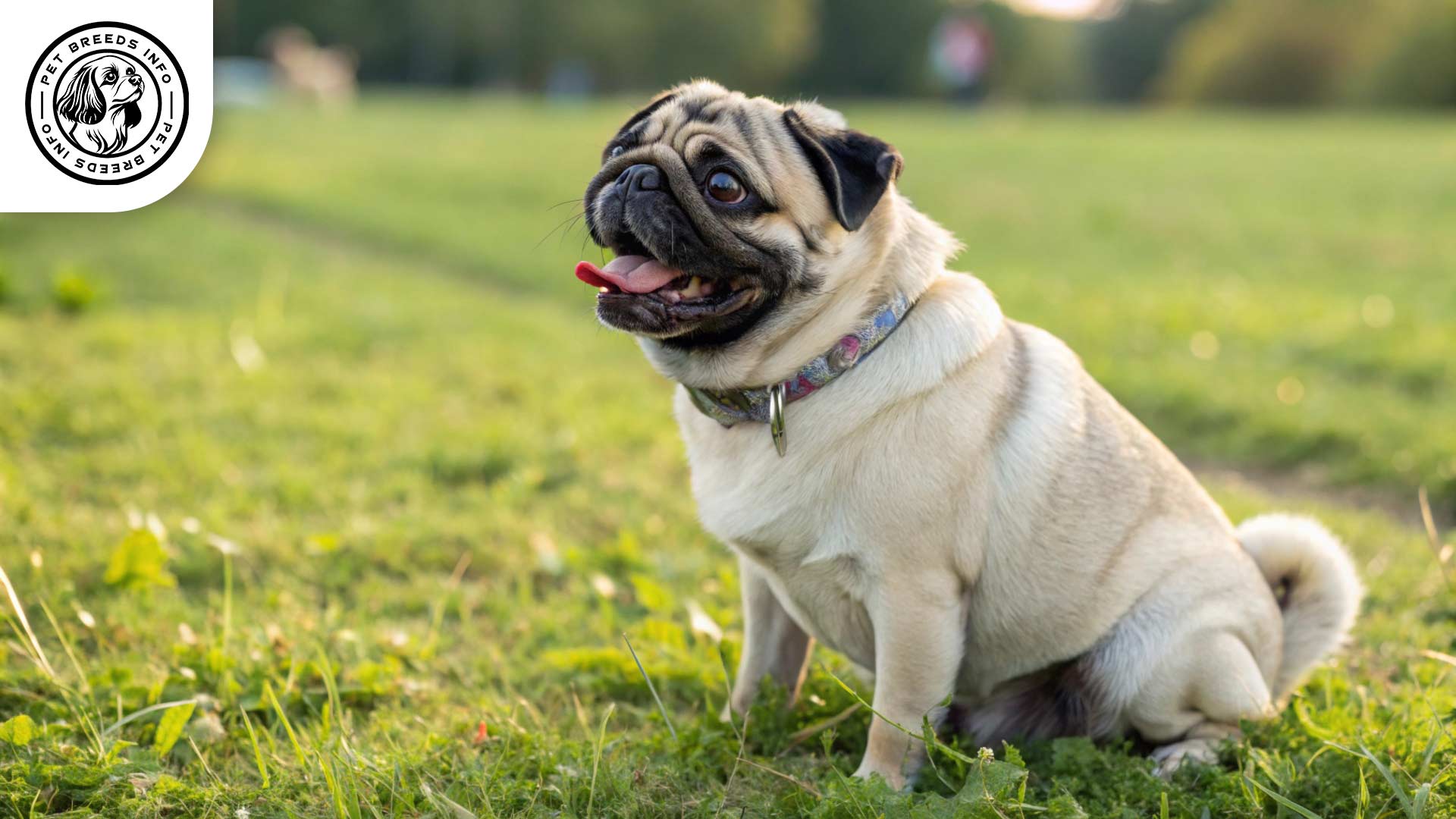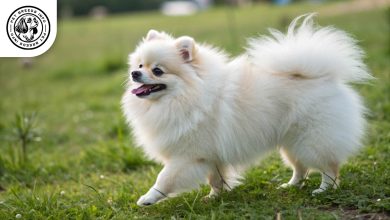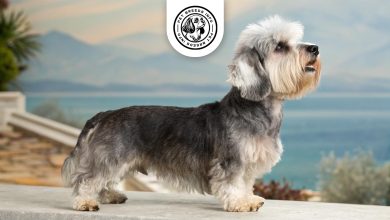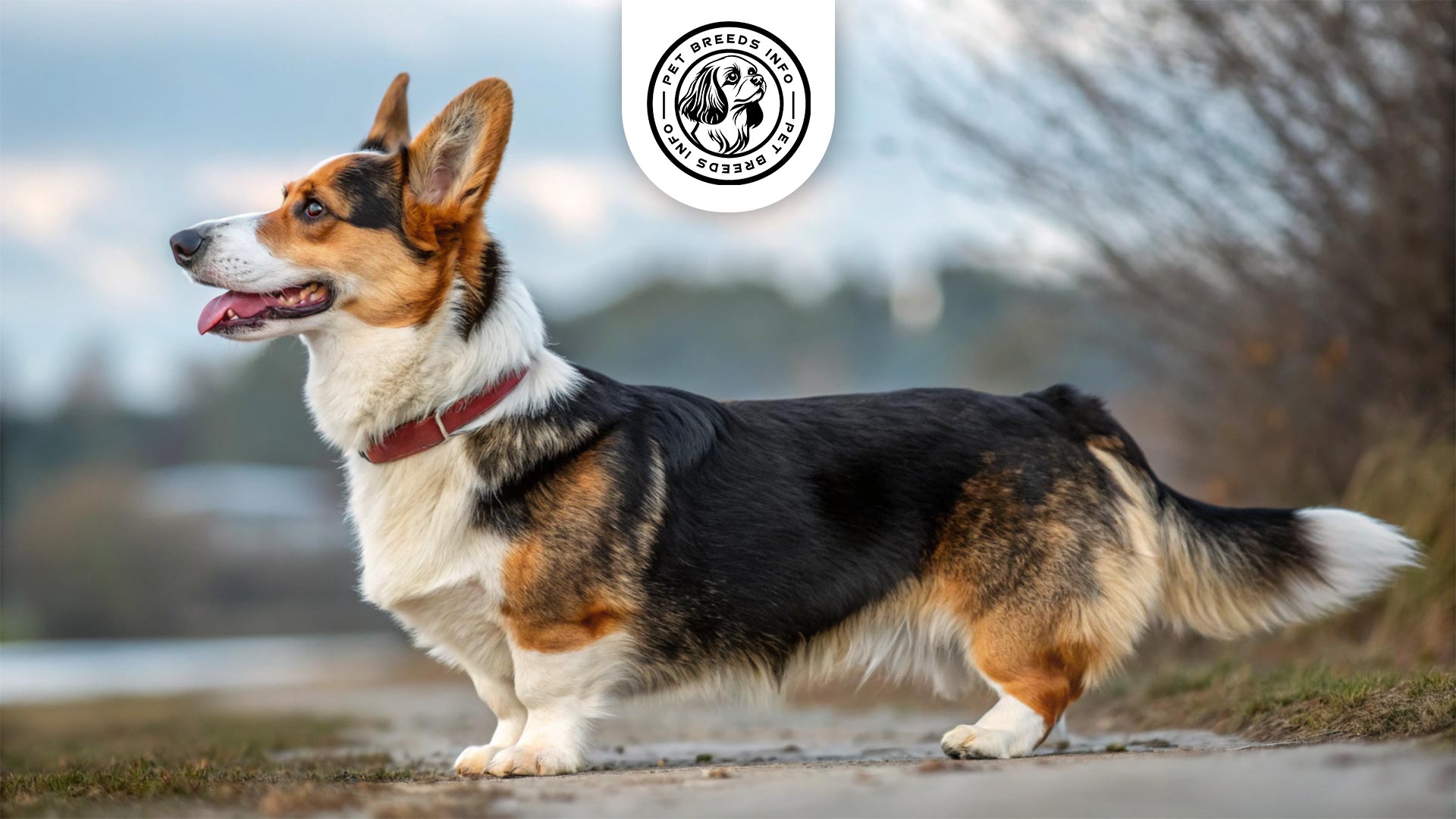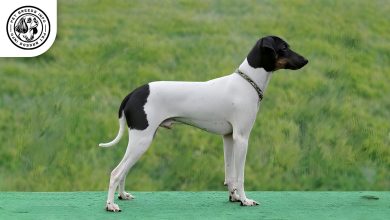Pug Dog Breed: Size, Health, Price & Personality
General Introduction of the Breed
The Pug, also known as “Carlin” in French and “Mops” in German, is a small but sturdy toy breed known for its charming personality and distinctive features. This breed originated in China and was later introduced to Europe by Dutch traders in the 16th century. Pugs were highly favored by Chinese emperors and later became a beloved companion to European royalty.
Table of Contents
| Color | Fawn, Black, Silver, Apricot |
| Weight | Males: 14-18 pounds (6-8 kg), Females: 13-17 pounds (6-7.5 kg) |
| Lifespan | 12-15 years |
| Diet | High-quality dry, wet, or balanced raw diets; Portion control is important |
| Care | Moderate exercise, regular brushing, wrinkle cleaning, nail trimming, teeth brushing, ear cleaning, temperature sensitivity |
| Health | Brachycephalic airway syndrome, hip dysplasia, eye diseases (corneal ulcers, proptosis), temperature sensitivity |
| Nature | Affectionate, playful, loyal, intelligent, stubborn streak, sensitive to environmental changes |
| Price | $1,000-$3,000 from reputable breeders |
Physical Characteristics
Pugs are compact, muscular dogs with a square-shaped body. Males typically weigh between 14-18 pounds (6-8 kg), and females weigh around 13-17 pounds (6-7.5 kg). Their height ranges from 10-13 inches (25-33 cm).
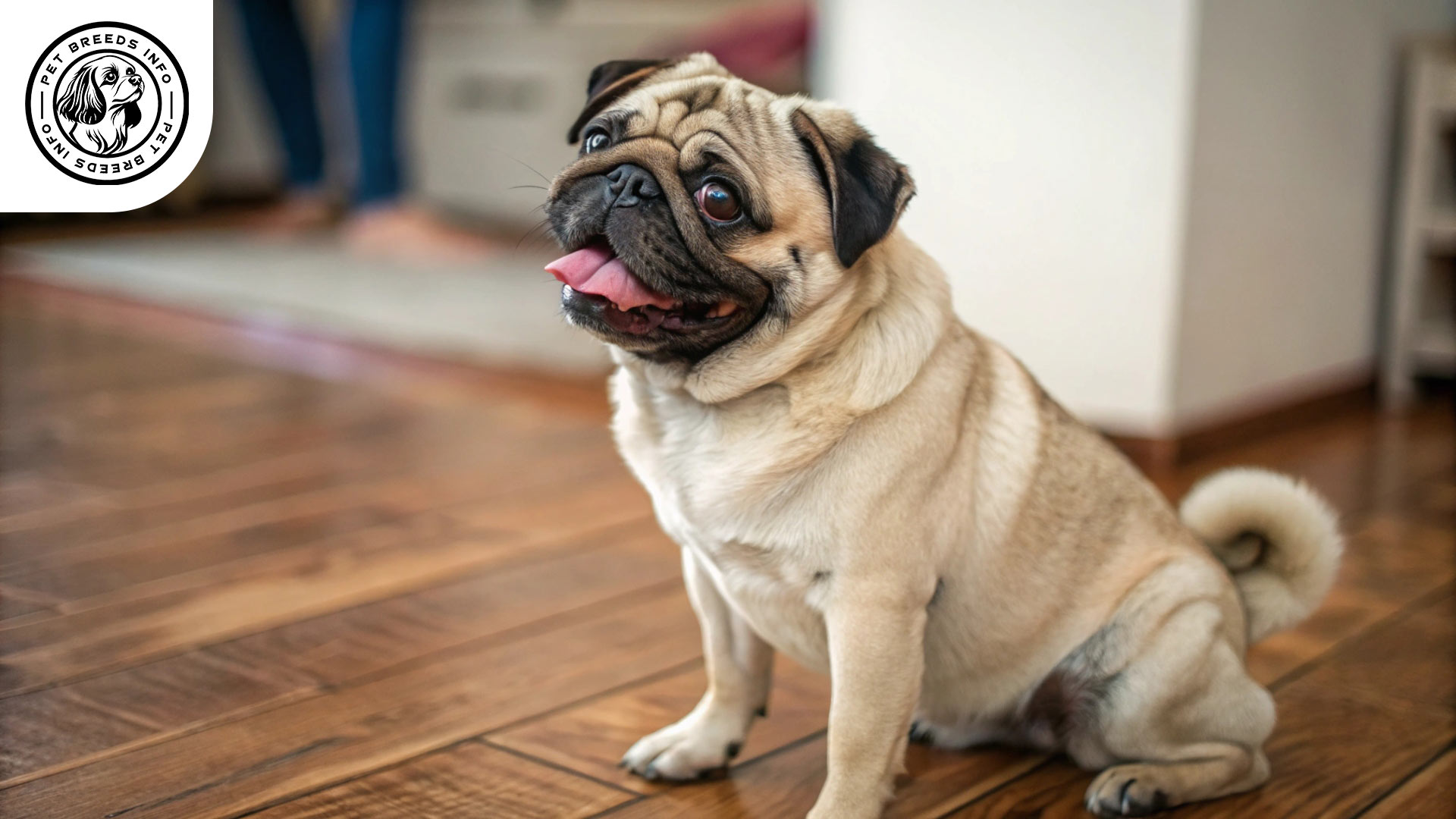
Their coat is short, smooth, and glossy, coming in colors such as fawn, black, silver, and apricot. They have large, dark, round eyes that give them an expressive look. Their ears can be “button” or “rose”-shaped, both of which are soft and velvety. Pugs have a curled tail that rests tightly over their back. Their distinguishing features include a flat face, deep wrinkles, and a compact, sturdy frame.
Read More: Portuguese Water Dog
Personality and Temperament
Pugs are intelligent and capable of learning commands with patience and consistency. They are moderately active, enjoying playtime but also appreciating relaxation. Pugs form strong attachments to their owners and thrive on companionship. They are friendly with humans, including children, and generally get along well with other pets. While they have a playful nature, they lack strong hunting instincts. Pugs are sensitive to environmental changes and do not tolerate extreme weather well.
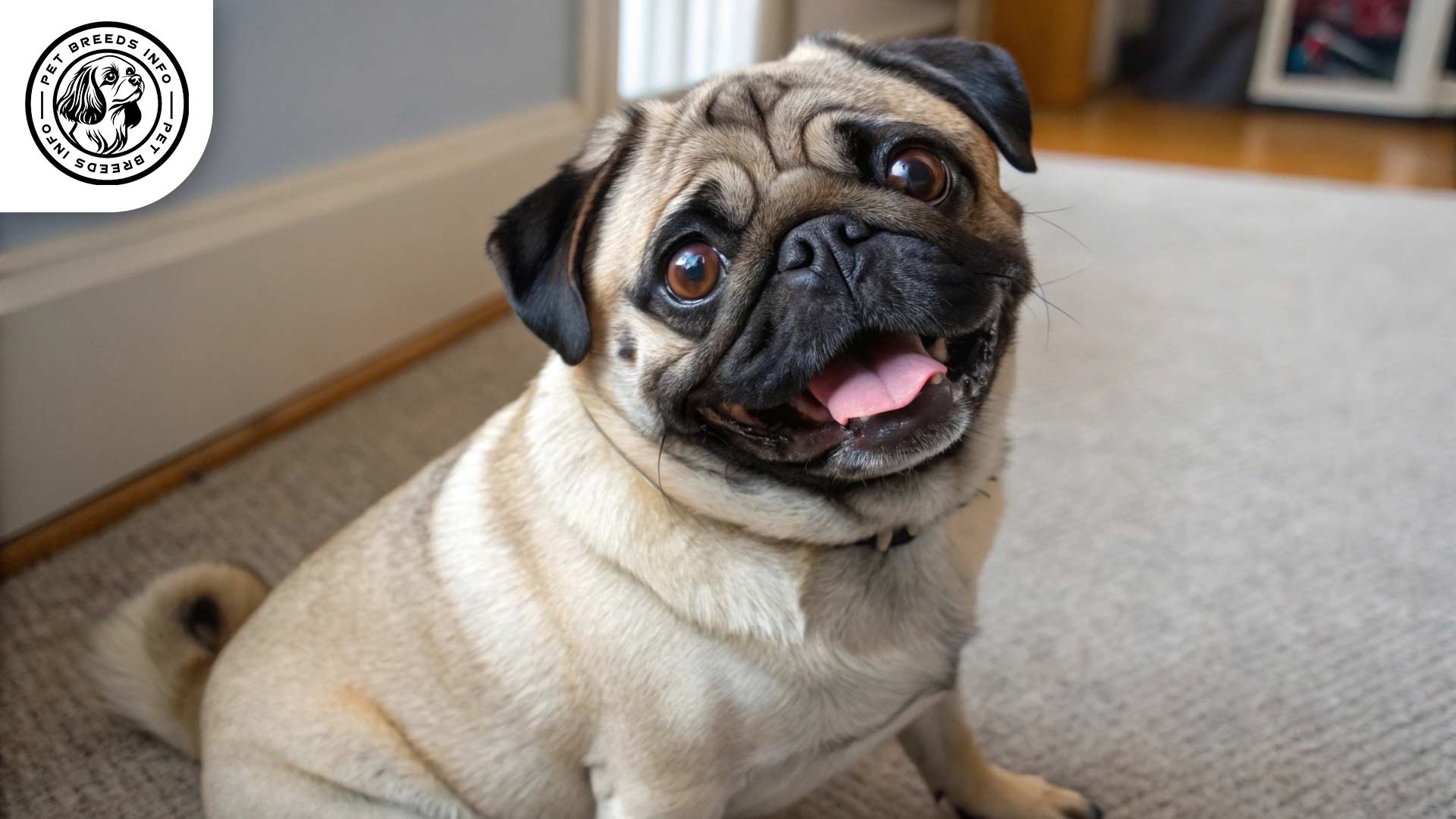
Care and Maintenance Requirements
Pugs need moderate exercise, including short walks and indoor play sessions, to maintain a healthy weight. They adapt well to apartment living but should not be left alone for long periods. Grooming requirements include regular brushing as they shed moderately year-round. Due to their brachycephalic nature, Pugs are sensitive to heat and humidity, so they should be kept cool in warm weather.
Routine care includes bathing every few weeks, nail trimming, and frequent cleaning of wrinkles to prevent infections. Regular teeth brushing and ear cleaning are also essential.
Diet and Nutrition
Pugs thrive on high-quality dry, wet, or balanced raw diets. They can be prone to obesity, so portion control is important. Avoid feeding them chocolate, onions, grapes, and excessively fatty foods. Most adult Pugs should be fed two small meals per day to maintain a healthy metabolism.
Read More: Standard Poodle Dog
Health and Common Medical Issues
Pugs are predisposed to several genetic health conditions, including brachycephalic airway syndrome, hip dysplasia, and eye diseases such as corneal ulcers. Their short noses make them prone to breathing difficulties, so owners should avoid overexertion in hot weather. The average lifespan of a Pug is around 12-15 years. Routine vaccinations, parasite prevention, and veterinary checkups are critical for their well-being.
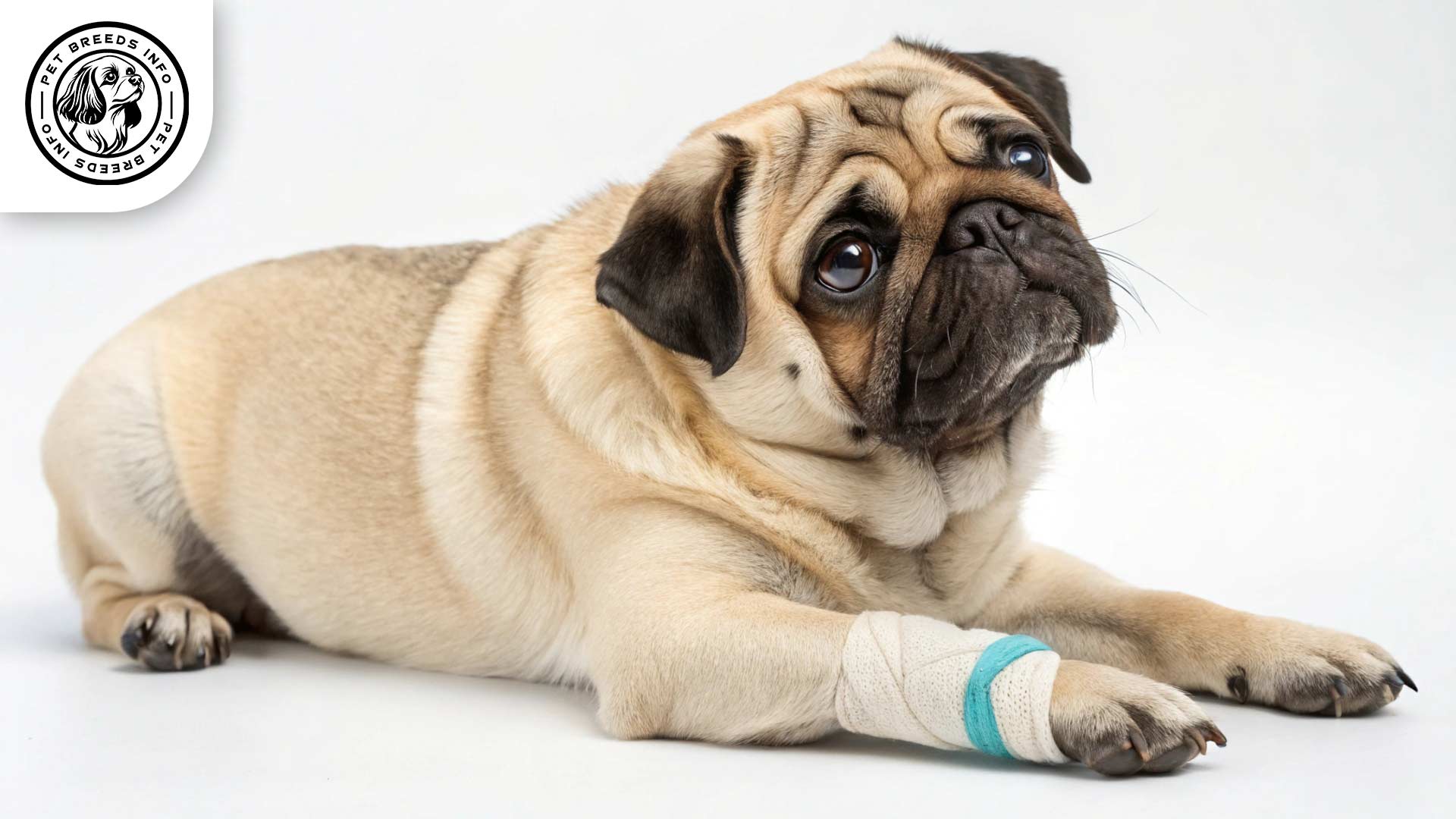
Training and Behavior Management
Pugs are eager to please but may exhibit a stubborn streak. Reward-based training with treats and positive reinforcement works best. Early training and socialization help prevent undesirable behaviors. Consistency, patience, and short training sessions yield the best results.
Interaction with Other Animals and Humans
Pugs are excellent family pets, as they are affectionate and gentle with children. They typically get along well with other dogs and household pets. They are well-suited for both individuals and families, as they love attention and companionship. While playful, they thrive on human interaction and should not be left alone for long hours.
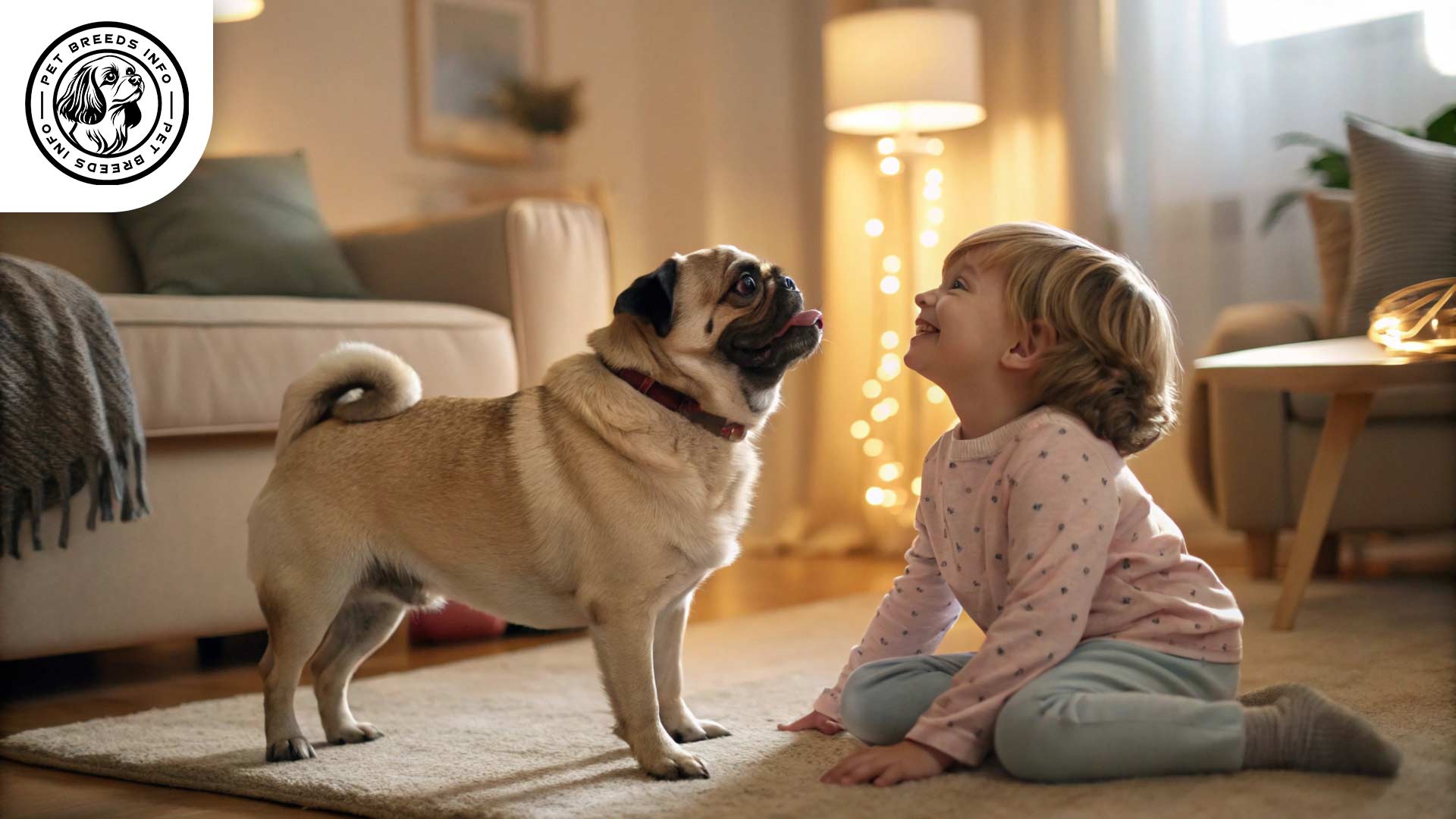
Price and Availability
Pug puppies from reputable breeders can cost between $1,000-$3,000, depending on pedigree and breeder reputation. Prospective owners should research breeders carefully and consider adopting from shelters or rescue groups. Ethical breeders prioritize health and genetic screening to ensure the well-being of the puppies.
Read More: Pharaoh Hound Dog
Conclusion and Final Thoughts
The Pug is an affectionate, playful, and loyal companion best suited for owners who can provide the attention and care they require. They thrive in both apartments and homes with families or individuals who appreciate their charming personalities. Potential owners should be prepared for their grooming needs, health concerns, and exercise requirements. With proper care and love, a Pug can be a delightful addition to any household.
FAQ
What are the common health issues Pugs are prone to?
Pugs are predisposed to several genetic health conditions, including brachycephalic airway syndrome, hip dysplasia, and eye diseases such as corneal ulcers and proptosis. Their short noses make them prone to significant breathing difficulties, and they are also sensitive to heat.
What type of diet is recommended for Pugs?
Pugs thrive on high-quality dry, wet, or balanced raw diets. Portion control is essential to prevent obesity. Avoid feeding them chocolate, onions, grapes, and excessively fatty foods. Most adult Pugs should be fed two small meals per day.
What are the grooming and care requirements for a Pug?
Grooming requirements include regular brushing as they shed moderately year-round. Routine care involves bathing every few weeks, nail trimming, and frequent cleaning of wrinkles to prevent infections. Regular teeth brushing and ear cleaning are also essential. Because they are Brachycephalic they are very sensitive to hot and cold weather.
What is the typical temperament of a Pug?
Pugs are affectionate, playful, and loyal companions. They are intelligent but may exhibit a stubborn streak. They form strong attachments to their owners and thrive on companionship. They are friendly with humans, including children, and generally get along well with other pets.
How much does a Pug puppy typically cost?
Pug puppies from reputable breeders can cost between $1,000-$3,000, depending on pedigree and breeder reputation. Prospective owners should research breeders carefully and consider adopting from shelters or rescue groups.
